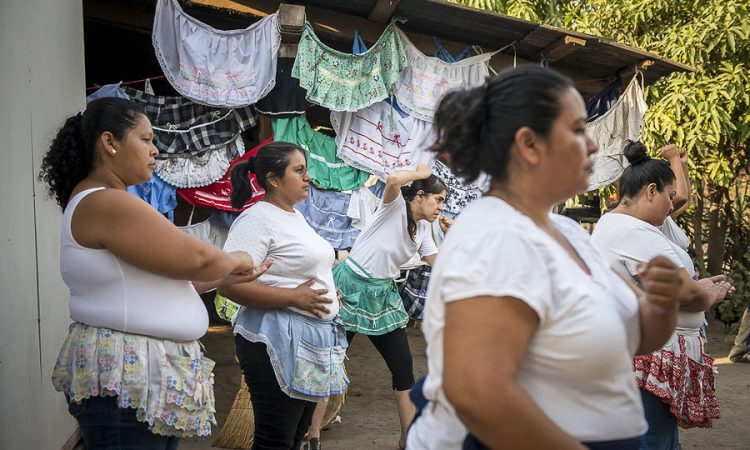SAN SALVADOR—The first sessions in the theatre workshop produced a feeling of restlessness in Magdalena Henríquez.
The teacher asked the students to stir up painful memories about growing up female and poor in El Salvador. When she turned 30, the single mother of three children, whom she could barely feed, spent the day crying in despair. Two years later, she didn’t want to be reminded that nothing had changed.
Still, she kept going to the workshops. One day Ms. Henríquez realized her middle child had stopped giving her the glass of water that both greeted and soothed her at the end of every day. He didn’t see the point of doing it, he said, since she wasn’t yelling at him and his two brothers anymore. “Mommy, I’m proud of you,” she remembers him saying. “You’re no longer violent with us.”
That was when Henríquez first realized something was changing. Fast forward six years, and she has left her tenuous job as a vendor to take up a better-paid, less exhausting job as a housemaid. And she became an actress.
“I’m 38, but I feel younger and more alive now. I have this desire to change things,” she says.
Henríquez is one of the five actresses of La Cachada Teatro, a theatre group that originated in workshops offered to impoverished single mothers in San Salvador by an NGO that works with children from the city’s poorest and most violent neighborhoods. She and her sister, Ruth Vega, along with Magalí Lemus, Wendy Hernández, and Evelyn Chileno, directed together by the actress and director Egly Larreynaga, created plays that incorporate their painful stories of domestic violence and sexual abuse into broader pictures of a deeply unequal, sexist, and violent country.
In El Salvador, cachada is slang for a unique opportunity, a bargain. These women say that theatre is the cachada of their lives.
Reporting for this story was supported by the International Women’s Media Foundation as part of its Adelante Latin America Reporting Initiative.





